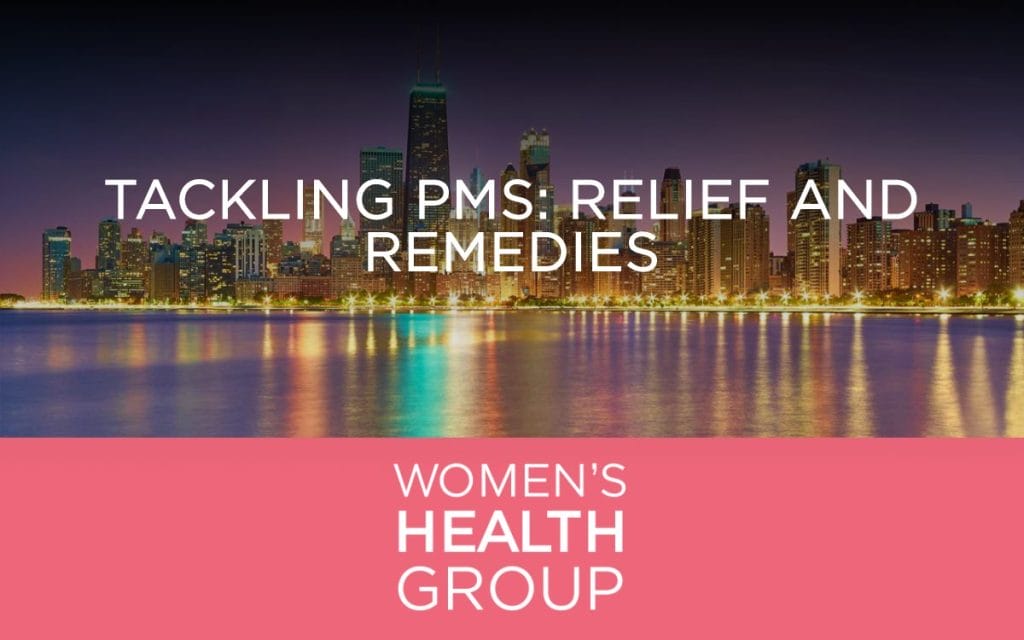Understanding PMS
Premenstrual syndrome, most commonly known as PMS, is a health issue that affects millions of women around the world. Characterized by a wide range of physical, emotional, and cognitive symptoms that occur in the days leading up to the menstrual period, PMS can be mild for some women and debilitating for others. At Women’s Health Group, Obstetrician-gynecologist of Chicago, Illinois, we understand the distress it can cause and are dedicated to providing reliable information and solutions for effective PMS management.
Signs and Symptoms of PMS
The signs and symptoms of PMS can vary, appearing a week or two before the menstrual period and typically resolving as the period begins. Symptoms can range from mild to severe and may change from cycle to cycle. Some of the most common signs and symptoms include:
– Abdominal bloating
– Breast tenderness
– Changes in appetite and food cravings
– Mood swings, irritability, and depression
– Fatigue and difficulty sleeping
– Acne flare-ups
Possible Causes of PMS
While the exact cause of PMS remains unknown, it is believed to be related to hormone fluctuations that occur during the menstrual cycle. Some studies suggest that certain women may be more sensitive to these hormonal changes, which can trigger the symptoms of PMS. Other potential contributing factors include:
– Changes in serotonin, a brain chemical believed to play a crucial role in mood changes
– Poor eating habits, such as a high intake of salty foods, which may lead to water retention
– Consuming large amounts of caffeine and alcohol, which may exacerbate mood swings and energy fluctuations
PMS Management: A Multifaceted Approach
Learning how to manage PMS effectively involves a multifaceted approach, tackling symptoms from various angles to offer relief. In many cases, lifestyle adjustments can make a significant difference in PMS symptom severity.
Nutritional Changes for PMS Relief
Adjusting your diet can play a key role in managing PMS. It’s recommended to:
– Reduce the intake of caffeine, salt, and alcohol to ease bloating and mood swings
– Consume foods rich in complex carbohydrates, such as whole grains, fruits, and vegetables to minimize food cravings and swings in blood sugar levels
– Enhance your calcium intake either through diet or supplements as several studies have linked it to a reduction in PMS symptoms
Physical Activity and PMS Management
Engaging in regular physical activity can help reduce PMS symptoms, especially depression and fatigue. This may involve brisk walking, cycling, swimming, or any other form of exercise that gets your heart rate up.
PMS Management with Medications and Supplements
When lifestyle changes aren’t offering enough relief, certain medications and supplements may help:
– Over-the-counter pain relievers can ease headaches, breast tenderness, and cramping
– Diuretics can help your body shed excess water, reducing bloating and breast tenderness
– Antidepressants can be used in severe cases, especially when PMS is accompanied by debilitating depression
Consider Cognitive-Behavioral Therapy
Cognitive-behavioral therapy could be beneficial in managing the emotional effects of PMS. This technique helps you understand and change thought patterns leading to behavior changes that can reduce feelings of sadness, hopelessness, and irritability.
Wrapping Up PMS Management
In understanding PMS, we at Women’s Health Group stress the importance of well-rounded approaches for effective PMS management. Not all strategies may work for everyone, but trying a variety of approaches can lead to finding a combination that eases the burden of PMS.
It can also be helpful to track your symptoms and lifestyle habits to identify potential triggers or patterns related to your PMS. Furthermore, having open discussions with a healthcare provider can provide additional insights and options for relief.
For more information on PMS, symptoms, causes, and treatments, we encourage you to visit this Mayo Clinic article or this guide from the Office on Women’s Health.
Remember, relief is possible, and you’re not alone in this journey of managing PMS.




